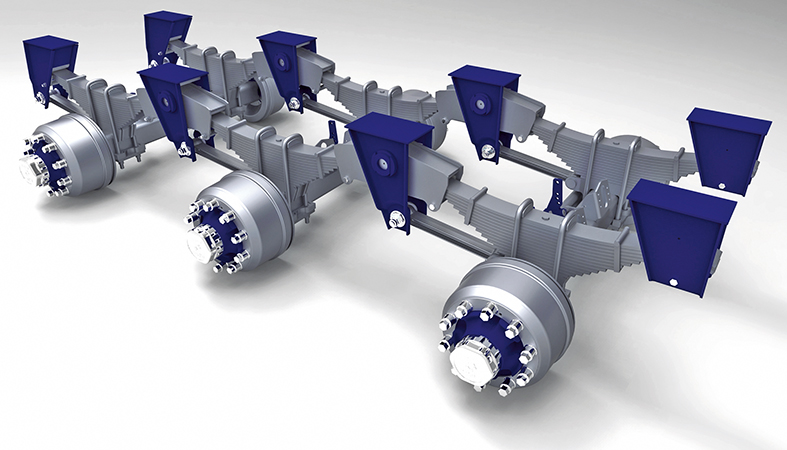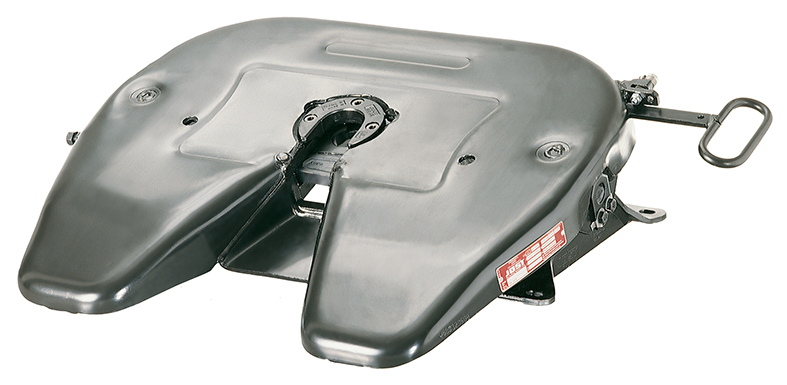In this interview with N. Balasubramanian, JOST India Automotive Components (P) Ltd.’s Managing Director and Vice President (Sales and Marketing) Pradeep G. S. advises companies and the industry alike to look ahead with optimism, strategize for the new normal and arrive at a clear roadmap while maintaining transparent communication with employees to be able to tide over the current crisis and get back to the pre-pandemic levels of operations

Could you elaborate about the current status of the company?
Though JOST India Automotive Components (JOST India) was forced to face a zero-billing situation due to the nationwide lockdown, we feel proud to say that we utilised the time highly effectively. While following the lockdown’s standard operating procedures to the highest degree, JOST India restarted operations in the middle of May with about 25% manpower. Our foremost challenge was to help our teams acknowledge the need for social distancing, understand the operations involved and work accordingly. Planning this meticulously helped our teams to be back in action as a well-oiled machine. Currently, we have a few export orders to Germany and China that will keep our machines running for a month or more.
How did you manage the crisis posed by the pandemic?
Desperate times call for desperate measures. And times like the current ones need establishing clear direction from the heads of the organisation to the employees. Right at the beginning of the lockdown announcement, we had set up a steering committee to conduct daily meetings. Our immediate task was to engage the entire team – from the managerial staff to the work floor associates – to bolster confidence, navigate such an unprecedented situation and to set up clear personal and organisational goals. We also decided to conduct intense learning sessions with our colleagues.
We relooked at our strategies, came up with a revision plan and now we are ready to implement what looks feasible in the short, medium and the long term. We are committed, as always, to take care of our people. We not only did it through the lockdown period but we are in a good position to transition now into business operations. Besides, we carried out intelligent fund management and also made infrastructural changes within the company like making most surfaces contactless for preventing contamination. For example, we have converted all water taps to foot-operated ones.

What is your outlook for FY 2020-21?
I feel FY 2020-21 will be about survival – which is all about proper management and conserving available funds. It will focus on cash flows which will be dependent on the business situation and how much business is received. Following the current dynamics, the turnaround may happen by mid-2021 following many adjustments and realignments. There is also the possibility of consolidation of companies at the lower tiers. Beyond this, we may only speculate.
What are your recommendations to leap over the pandemic crisis?
I would suggest the following which we have been doing at JOST India: a) keeping communication channels open from board members to the base of the pyramid in an organisation, b) being open to suggestions from everyone in the company and implementing those beneficial to the company and the staff because we believe that this bonds everyone together better and the commitment is then for the long term, and c) scrapping the inventory pile-up and converting it into cash. We feel that offering heavy discounts can bring in more money.
It would also be a wise option to invest reserves in flexible fixed deposits with banks and collect interest. At this stage, it is important to not let, as far as possible, any negativity impact the business or the salaries of the staff. Think of it this way – paying salaries will have a minimal impact on the bottom-line, but the impact of a salary cut on the lives of the people will be huge. And they will not forget the negative impact because it is an emotional matter. We want to let our people know that we will stand by them in a situation like this.

What role should the government play at this juncture?
The automotive industry seems to have been overlooked by the government while offering a stimulus package. The market sentiments in the industry need to be uplifted and there has to be a trigger to escalate demand. As for expectations from the government, it is high time that the GST on automobiles and automotive components is reduced from 28% and a big impetus is given to infrastructure development besides encouraging the PPP model. Many PSUs should be opened up to privatisation, including railway stations and airports, by entering into a PPP model. We must break out of our conservative mindset. Developing suburbs of Tier II cities will help us go a long way.
During this pandemic we witnessed daily wagers’ return migration and now it is a challenge to get them back. If the suburbs of the Tier II cities are developed and industrialised, there will be no need for people to migrate to big cities. Another recommendation would be to implement the trailer homologation code. This has been in discussion since 2008. It is perfect time now, I feel, for the Ministry of Road Transport and Highways to enact it because the code is in the interest of the industry. It will help keep our roads safe. Also, the government should implement the interchangeable aspect of tractor-trailers.
In Europe, the trailers get used as temporary warehouses in parking yards for a few days. The benefits get negated if we come out with higher tonnage and low horsepower trucks which drive slow on the road. With more expressways being built, it is high time we see more tractor-trailers plying. The interchangeable aspect of tractor-trailers provides more flexibility to fleet owners who have fewer tractor heads but can attach them to a greater number of trailers. The turnaround time can be high since a breakdown or delayed delivery of goods will have lesser impact. We hope that the right buttons get pushed by the government sooner than later.
In your opinion, what can drive industry revival?
I foresee newer ways of operations and innovations getting implemented in the near future. Given that the preference to work with India as against China is becoming increasingly visible, India can encash this opportunity if the government plays its cards well. I hear the government is talking about offering industrial land as big as the city of Luxembourg. This certainly is positive news. Consistent with social distancing norms, e-commerce will flourish better than before and at the same time the local retail shops will get their due recognition as people are now avoiding going to big malls and supermarkets.
Sharing cabs is not a healthy choice anymore which may see increased sales in cars and two-wheelers. Meanwhile, the manufacturing industry and automotive ancillaries like that of ours along with sectors like steel and textiles will take time to come up because we are not talking of the OEMs but those in the Tier II and III regions. They will take some more time. Also, supply chain disruptions are expected to take place, though strong companies will recover with demand. I am sure that most companies would have planned for rainy days like this.
What is your success mantra?
Staying positive is the key, besides drawing up a clear roadmap, breaking difficulties into addressable short, medium and long-term issues, having clear possibilities and accepting what cannot be changed while adapting to the situation. With a clear roadmap, I am sure we can come out trumps from this situation.